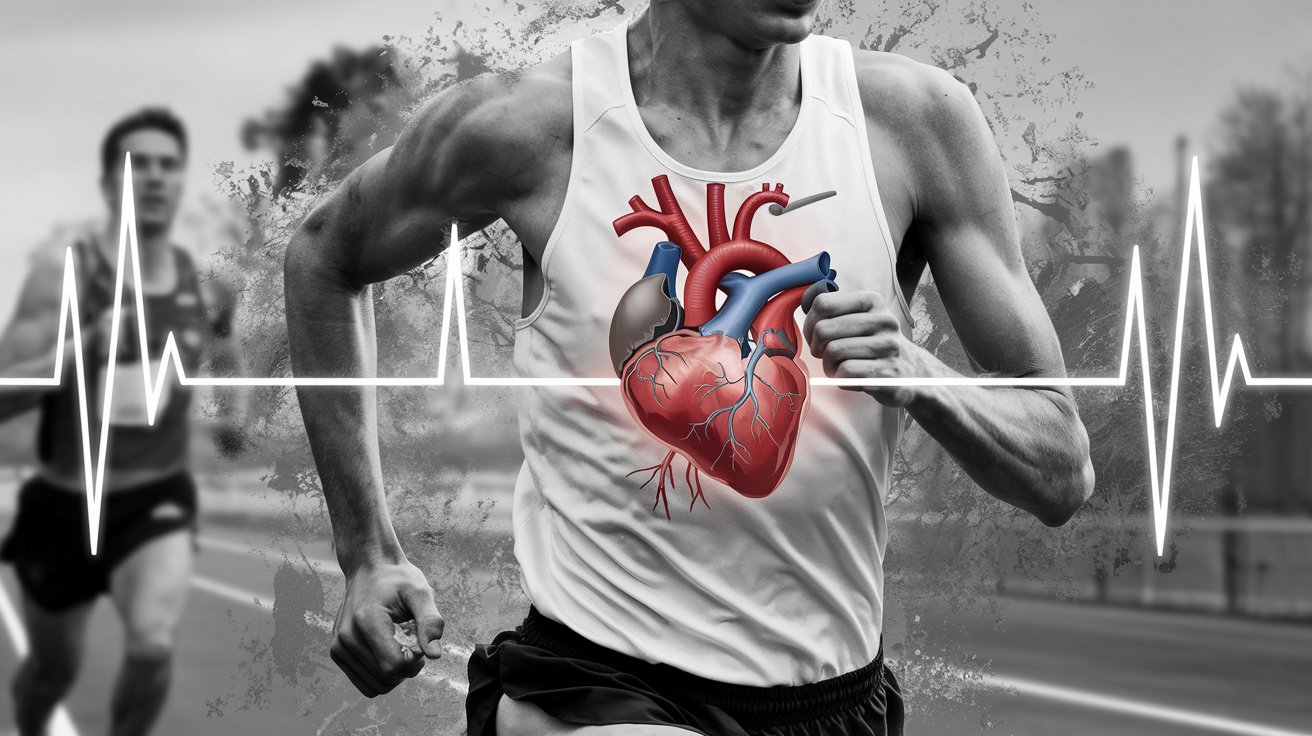Have you ever asked yourself questions like running that for hours can cause a heart attack?
It is probably a thought that could have come to your mind more often when hearing about horrible stories of apparently healthy people who collapsed mid-running. Running is celebrated as a heart-healthy activity, so why do some people experience heart attacks while running? Is there a danger especially for those who are engaging in this activity that is believed by many to be one of the best cardiovascular exercises? It’s now time to explore more on what leads to the conduction of a heart attack while running and how to prevent it.
Without a doubt, running is a wonderful and effective means by which most people can maintain their cardiovascular fitness, lose weight, and become healthier individuals. But it is a worry when heart attacks occur when running or during marathon-like sessions. It is said that running can lead to heart attack even though it may seem illogical; it is true in some way sometimes.
But why? What does one find in the body that causes a healthy activity to become fatal?
What Causes a Heart Attack While Running?

A heart attack is sometimes referred to as a myocardial infarction and it occurs when blood circulation to the heart muscle is restricted meaning a section or the whole muscle may be injured or die. This blockage is most often the result of fatty deposits or plaque formation within the coronary arteries which nourish the heart. If the plaque bursts, it means that blood flow is stopped and this leads to a heart attack.
In the context of running, here are the main factors that can increase the risk of a heart attack:
1. Underlying Heart Conditions

Sophisticated in the event of an acute myocardial infarction: the leading cause for which is, undoubtedly, the existence of asymptomatic or poorly controlled pathological conditions of the heart. Some people might have been having blocked or narrowed arteries without their knowledge at all. During running your body demands more oxygen and blood for the muscles and other parts of the body, which in turn increases the pressure on the arteries.
This causes easy fatigue, and sickle cell anemia, and even if there is a blockage or restriction in blood flow, the strain from running leads to a heart attack. This is especially important for those who work hard and run brisk or high-intensity without knowing they have heart problems.
2. Overexertion

Is it possible that ordinary jogging may lead to a heart attack?
Yes, but only when taken in a limited amount and mostly when one has overworked his/her body. Forcing your muscles to be subjected to these exercises without proper warm-up sessions is dangerous especially if one has not practiced intense exercises before. You know, jogging, for instance, puts a lot of pressure on the heart, especially with people who are not used to such intensity of exercise.
Such exercises if not followed by warm-up or preparation are likely to result in what is known as sudden cardiac arrest whereby the heart stops operating. This can be because of arrhythmias which are irregular heartbeats mainly due to excessive exercise.
3. Dehydration and Electrolyte Imbalances

During a run, you start sweating and sweating cause loss of electrolytes such as sodium and potassium. These electrolytes are critical to the well-being of your heart since they will regulate the rate of beat. Dehydration has the potential to influence the levels of electrolytes out of proportion which in turn can lead to the occurrence of arrhythmias or irregular heart beats. This can progress to where it becomes lethal, as in a heart attack say, in extreme conditions.
4. Heat and Humidity

Jogging especially in regions that have high temperatures and humidity means that your internal body temperature rises. Therefore your ticker has to work much harder to regulate the increased temperature. This adds more pressure on your heart and can increase your chances of a heart attack especially if this is not what you are used to back home. When combined with dehydration and loss of electrolytes, the risk becomes even higher.
However, it and another cardiac arrest while jogging show that such occurrences are quite rare for healthy individuals. Indeed, for most runners, regular running entails a broad array of cardiovascular advantages including lower probabilities of general heart attacks.
Can Running Cause a Heart Attack in Healthy People?

It is essential to note that an occasional heart attack even to a comparatively ‘healthy’ person can occur during a run. This can be attributed to a previously undiagnosed illness these include; hypertrophic cardiomyopathy – thickening of the heart muscle and/ or coronary artery anomalies that can lead to abrupt heart ailments.
How to Minimize the Risk of a Heart Attack While Running

However the idea is that running is safe for most people and has multiple health benefits to offer, thus one should remain cautious and try to reduce the risk of having a heart attack during the run.
1. Know Your Heart Health
Before starting an aggressive running regimen one should visit the doctor for a heart exam if one has a family history of heart disease, high blood pressure and/or high cholesterol, or any other cardiovascular conditions. A stress test, an ECG, or any other heart check test can reveal some medical conditions that may lead to the development of stress in you.
2. Start Slowly to the Running Habit
If you are a beginner, you must begin with a slower pace. Use when starting and increase the workout intensity little by little in order not to cause early exhaustion. The body must have the chance to adjust to the greater cardio-vascular loads and pay attention to what your body is telling you. It was noted that heart attack while running is common due to exertion, especially among people who overestimate their capabilities.
4. Stay Hydrated
Dehydration also has certain risks which include throwing the electrolytes balance off and this makes the heart react weirdly. Always ensure you have had enough water in your body before you start your run, during the run and after the run especially if you are running in a hot and humid climate. For longer runs, and for every hour that you spend on the road, you might want to seek a replacement of the electrolyte balance.
5. Avoid Running in Extreme Conditions
High temperatures & humidity can stress your heart lessening your capacity to run safely. In extreme heat, avoid doing outdoor exercising and if one has to, then one should do it early in the morning when the heat has not risen or in the evening when it has finally dropped. Always take time to listen to the body and if the body is very weary or aching then it is time to pause or slow down the jogging exercise.
6. Recognize Warning Signs

One of the most effective preventive measures that can help work wonders while running is knowing the signs of a heart attack. If you experience any of the following symptoms, stop running immediately and seek medical attention:
❖ Chest pain or discomfort
❖ Shortness of breath
❖ Dizziness or lightheadedness
❖ Heart palpitations
❖ Excessive fatigue or weakness
❖ Failure to heed such signs may have serious to possibly fatal outcomes.
Conclusion
Therefore, it can be noted that running is not actually a leading factor in heart attacks and it is generally good for the heart. However, there are certain conditions when running may lead to a heart attack when one has a history of heart disease, individuals who exercise beyond the capacity of their body or who fail to take enough water during a race or a marathon when the weather is extreme.
If you’re concerned about whether running can lead to having a heart attack, you should first visit your doctor and be more in touch with your body during exercise. If proper measures are taken then jogging is beneficial for an individual's heart rather than being a detriment.
